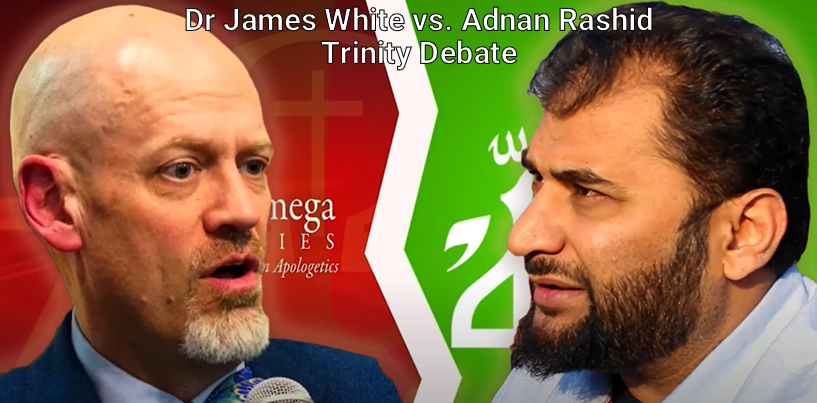Reflections on the Baptist Confession of Faith of 1689.
23 Aug 14 began a perhaps unbroken, orderly, and personal journey through my favorite written confession of faith. This will be my personal reflections on this beloved written codification of the Christian Faith which is according to a Baptist flavor.
NEXT-
Section 14.2c: “…but the principal acts of saving faith have immediate relation to Christ, accepting, receiving, and resting upon him alone for justification, sanctification, and eternal life, by virtue of the covenant of grace.”
The covenant of grace mentioned here is what many Reformed divines refer to as everything after the Fall of Adam. Adam, they say, had with God a “covenant of works” whereby if he obeyed he would not die and would enjoy eternal life. Upon disobeying then and dying in sin, his/their posterity (us) needed a “covenant of grace” with God as those now under SIN. All of the covenants (Noahic, Abrahamic, Mosaic, Davidic, New (specifically the last four)) are all really just a part of one overall covenant of grace. While the New Covenant in Christ towers above them all as the one to which all the others gave way by God’s design, it is all one massive covenant of God’s grace toward his elect. God’s elect are never saved by anything other than God’s un-merited grace, love and favor. This is why they write here of “resting upon him alone for justification,” etc.
Protestant theology centers on not on just the necessity of God’s grace, but on the sufficiency of it. Anyone trusting in Christ “alone” despises the devilish ideas of cooperative grace or salvation by works.
On sanctification. The Christian life is a life planned by the God who redeemed us. It is designed to be a life lived in the world, yet still not of the world, 1 Peter 2:9, etc. Today it’s certain that God fully and meticulously planned for Christians to live on in this fallen world after, and sometimes long after, their regeneration from out of it. He is glorified in the Gospel in such. As often as we take of the Lord’s Supper, for example, in this life we remember his great grace toward mankind in the Cross of Calvary. Sanctification, technically speaking, is a term we can apply to every part of our actual redemption in Christ. God’s first work of sanctification in our lives is our regeneration itself. This leads to our accepting and trusting in Jesus by faith.
God communicates to his people through his word in every part of their lives. From being young in the faith to growing old, God’s word speaks to us at every step of the way. The confession speaks about this throughout this section. When it speaks of, “…the principal acts of saving faith…” I want to call out what we might call an eminent priority of the Gospel in all we do. Like Christian in Bunyan’s inimitable “Pilgrim’s Progress,” if Christianity was a path, it’s entered upon through the wicket gate. There is a point where a person is made to see that the Cross is their introduction into grace with God. The place where God is justified in justifying the un-godly, the sinner. What I mean is that a man can hear a million great and true things about God, but nothing else matters eternally if he does not obey the command to repent and be brought into God’s gracious New Covenant by adoption. The Gospel being defined definitively as the offer of a full pardon from sin through the Cross becomes paramount for each of us by being shown as that which we most need to know in this life for the life to come. Everything in the Bible matters by degrees, but nothing matters if the Cross doesn’t matter most as our way of knowing the God who wrote it. The Gospel alone is not the full counsel of God, but it is the priority for a dying man insofar as any other man could deduce. A man must repent of his sinfulness and trust in Christ or even all the other teachings of Christ will not profit him in the life to come. It’s through some focus of the Gospel on the principle need we all have of regeneration that talks, if they could ever be delivered from scratch to someone in a wise order of things, should embark upon.
I’ve said it before, and I’ll say it again. I’m no reductionist. I’m no “mere Christianity” guy as the term is developing today. I would never say that, “All we need is the Resurrection of Jesus and we can do away with everything else in the Bible” as some today like to say. Church is not for the non-believer. It’s for the believer. The confession of faith here in this section is not a reductionism. It speaks of the way we come into the faith. It is through Christ that we come. It is through God’s grace we’re invited. Have you answered the call? We do so by repenting of our sin and trusting in Christ alone.








prsjvyfja rxqze peybfyr klvu vbphcgmesozqvvh
678291 675913The electronic cigarette uses a battery and a small heating factor the vaporize the e-liquid. This vapor can then be inhaled and exhaled 744994
523319 120581Merely wanna input which you have a extremely nice internet website , I really like the pattern it really stands out. 24453
738415 909248Hi there! Good stuff, please do tell me when you lastly post something like this! 957452
636389 654946Actually instructive and superb structure of articles, now thats user friendly (:. 943267
930080 773981The other day, while I was at work, my cousin stole my iPad and tested to see if it can survive a thirty foot drop, just so she can be a youtube sensation. My iPad is now destroyed and she has 83 views. I know this is entirely off topic but I had to share it with someone! 325540
83220 47084Respect to website author , some wonderful entropy. 965430
122946 399126Wow, marvelous weblog format! How lengthy have you been blogging for? 246423
548154 668485Oh my goodness! an incredible article dude. Thank you Nonetheless Im experiencing challenge with ur rss . Don know why Unable to subscribe to it. Is there anyone getting comparable rss drawback? Anybody who knows kindly respond. Thnkx 646489
343429 979144This is something I really have to try and do plenty of analysis into, thanks for the post 569153
676659 492966Wow that was strange. I just wrote an extremely long comment but right after I clicked submit my comment didnt appear. Grrrr well Im not writing all that more than once more. Regardless, just wanted to say amazing blog! 876524
327708 86508Have you noticed the news has changed its approach recently? What used to neve be brought up or discussed has changed. Its that time to chagnge our stance on this though. 444068
987566 565957You ought to experience a contest personally of the finest blogs on-line. Im going to suggest this page! 235955